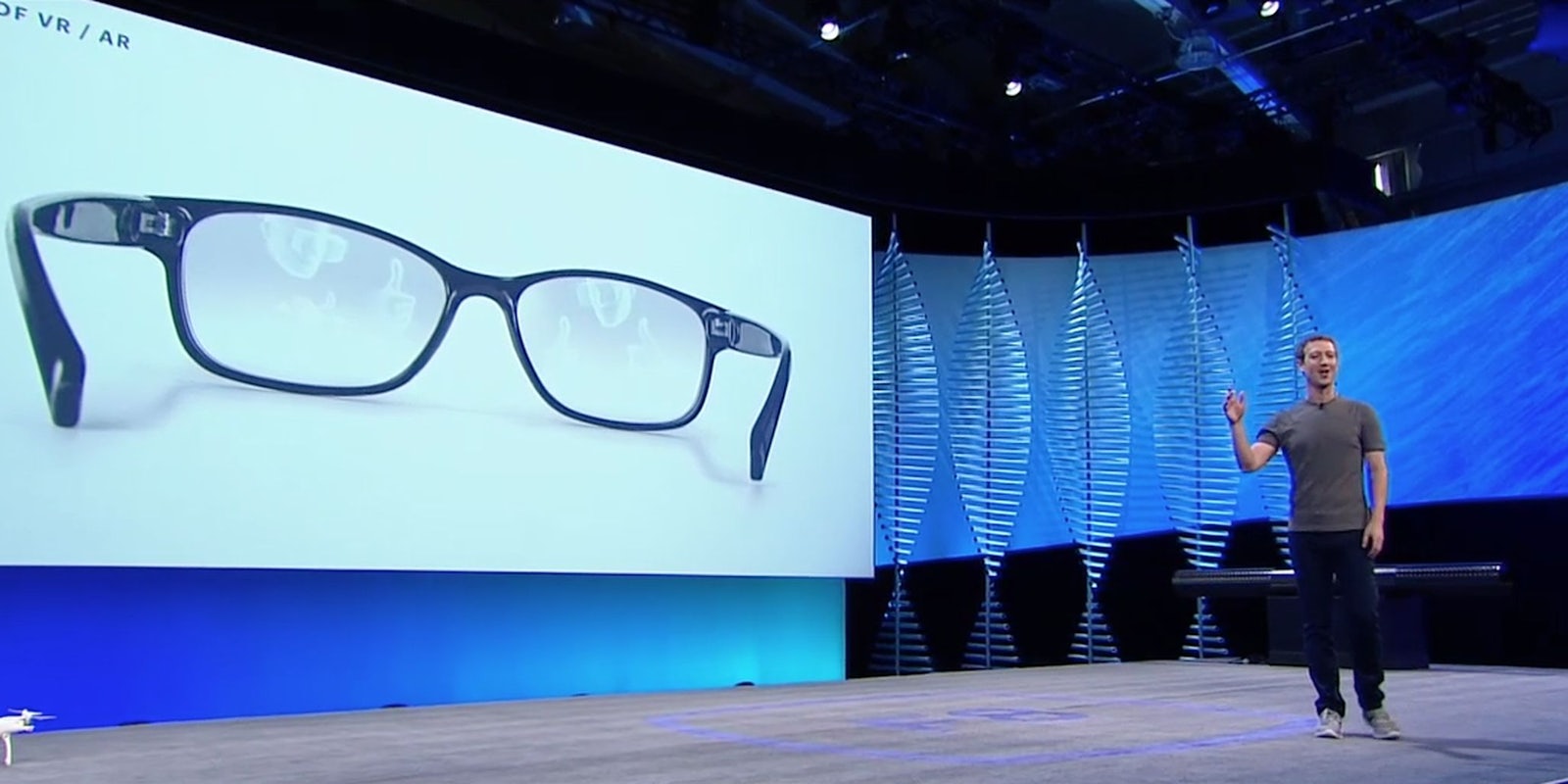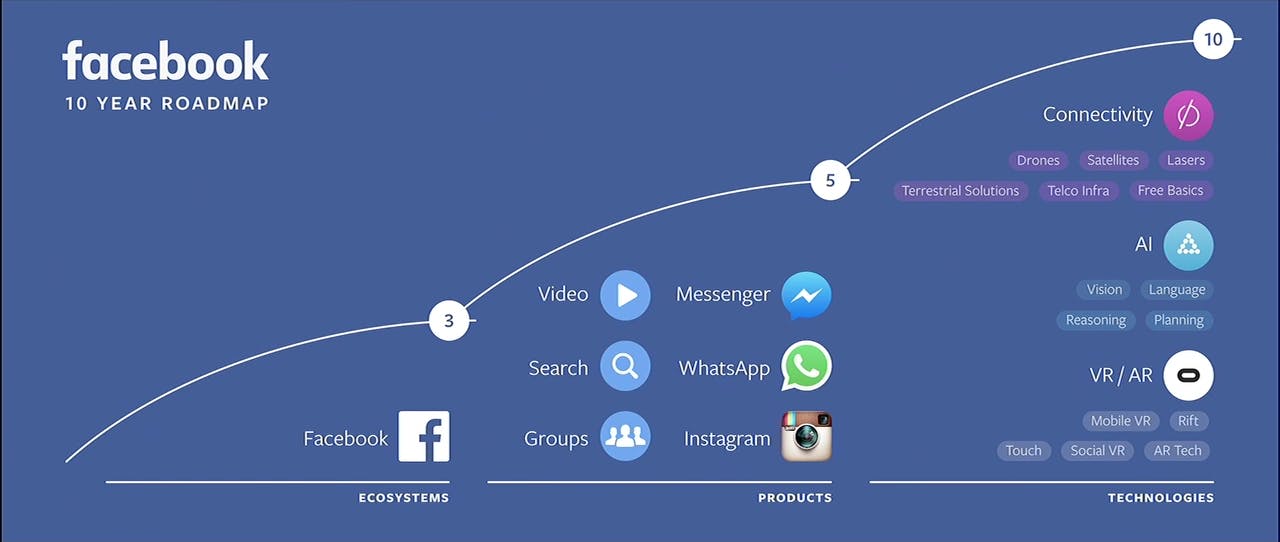Facebook is slowly taking over the world, or at least, its connectivity.
In 10 years, Facebook CEO Mark Zuckerberg thinks augmented and virtual reality headsets will look more like eyeglasses; giant Facebook drones will beam Internet to the most remote parts of the world; we’ll use artificial intelligence to facilitate interaction between people and businesses; and interact with friends in VR as if they were sitting right next to us.
This is the Facebook vision Zuckerberg laid out at the F8 developer conference on Tuesday. He kicked off the annual event that launches new products and services for developers and consumers by talking about his goal to connect the world through text, video, and broadband.
In his introductory comments, Zuckerberg took a political tone and intertwined his beliefs about global connectivity with current events and human rights. He called attention to the crisis of Syrian refugees, and, without mentioning him by name, alluded to Republican presidential contender Donald Trump‘s plan of building a wall to keep out immigrants.
“As I travel around the world, I’m starting to see people and nations turning inward, against the idea of a connected world and global community,” Zuckerberg said. He ended his remarks with: “Instead of building walls, we can help people build bridges.”
To that end, Zuckerberg and company are building technologies to connect people through Facebook, no matter their geographic location or access to digital tools. Despite the proliferation of mobile devices, billions of people around the world still don’t have access to the Internet.
Through initiatives like the drone program to beam Internet to the ground, Internet.org’s Connectivity Lab, and the Free Basics program for mobile users, Facebook is increasing Web accessibility to communities that don’t have it. However, Free Basics has already faced significant controversy, as net neutrality activists think Facebook essentially making itself the Internet isn’t right.
Once those people are connected, how will they, and everyone else, engage with people and businesses? Through an amplified Messenger service with artificial intelligence chatbots supporting interaction between people and businesses, and augmented and VR systems that put people in the same room together even when they’re thousands of miles apart.
Facebook’s Oculus Rift headset is now available to order, but it’s reportedly faced shipping issues, delaying adoption of the device. Facebook is also working with the Gear VR system, a cheaper, Samsung-only VR option. Onstage at F8, Zuckerberg said that eventually these systems won’t look like giant pieces of headgear, but rather sleek glasses that resemble Ray Bans or other fashionable eyewear we wear on a daily basis.
The company’s push into livestreaming video is well underway, and over the next few years, it will be an increasingly popular way of connecting with friends and family, Zuckerberg said. The company introduced new features and hardware that make it easy to capture and stream Live on Facebook, and recent updates let you see real-time comments and discover Live videos all over the world.
Further down the road, Facebook’s plans for artificial intelligence go deeper than facial recognition software that can identify you and your friends in your camera roll, or host conversations via bots. Zuckerberg said that whether you’re developing social tools or diagnosing diseases, you’re using a lot of the same tools.
“Our goal is to build systems that are better than people at perception,” he said. For instance, Facebook recently rolled out new computer vision technology that lets people with vision impairment “see” photos on Facebook through automatically generated alt-text.
Facebook’s vision is summed up in one vague statement, that barely alludes to all the ways Facebook is reaching its tentacles into our communication, information gathering, personal data, and human and machine interaction.
“We want to give everyone the power to share anything with anyone,” Zuckerberg said.
Including, and perhaps especially, with Facebook itself.



